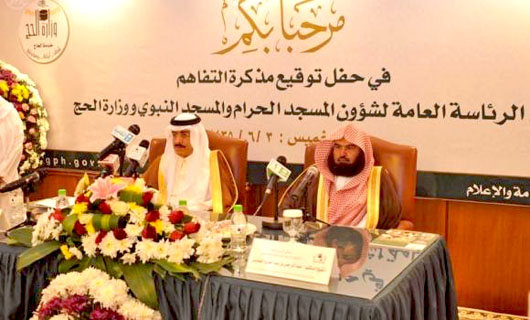
Riyadh, Apr 4: The Ministry of Health has announced quarantine measures for Haj and Umrah pilgrims who are coming from countries that have a high rate of infectious diseases.
The ministry had sent out the circular to the Foreign Ministry that would be circulated among overseas missions spelling out the requirements for visa issuance for various countries.
Ziad Al-Memish, undersecretary to the Ministry of Health, said the Kingdom has been carefully monitoring developments throughout the globe in the field of infectious diseases.
He said the requirements stipulated in the new circular are in line with the requirements set by the World Health Organization (WHO) to control the spread of infectious diseases worldwide.
This year, Al-Memish said the Kingdom had focused on diseases such as yellow fever, meningitis, seasonal influenza, polio and food poisoning.
He said that the vaccines should be given 10 days before pilgrims commence their journey.
“We have also advised elderly pilgrims and others who suffer from chronic diseases such as cardiac conditions, diabetes, renal and respiratory maladies to postpone their pilgrimage,” he said.
“We have prescribed specific vaccines considering the incidence of disease in these countries.”
“In addition, ships and aircraft carrying pilgrims should also produce a certificate stating that the carriers are free of mosquitoes,” he said.
Besides these vaccinations, the spokesman advised pilgrims to take precautions against influenza to prevent a flu attack during their stay in the Kingdom.
“The flu vaccine is not mandatory, but is desirable considering present weather conditions and the susceptibility of pilgrims to influenza,” he said.
He advised high-risk patients with chronic ailments such as diabetes, hypertension and renal diseases to take the flu vaccine in the event they decide to embark on the Haj or Umrah pilgrimage.
Al-Memish also reminded pilgrims to pack food in sealed containers.





Comments
Add new comment